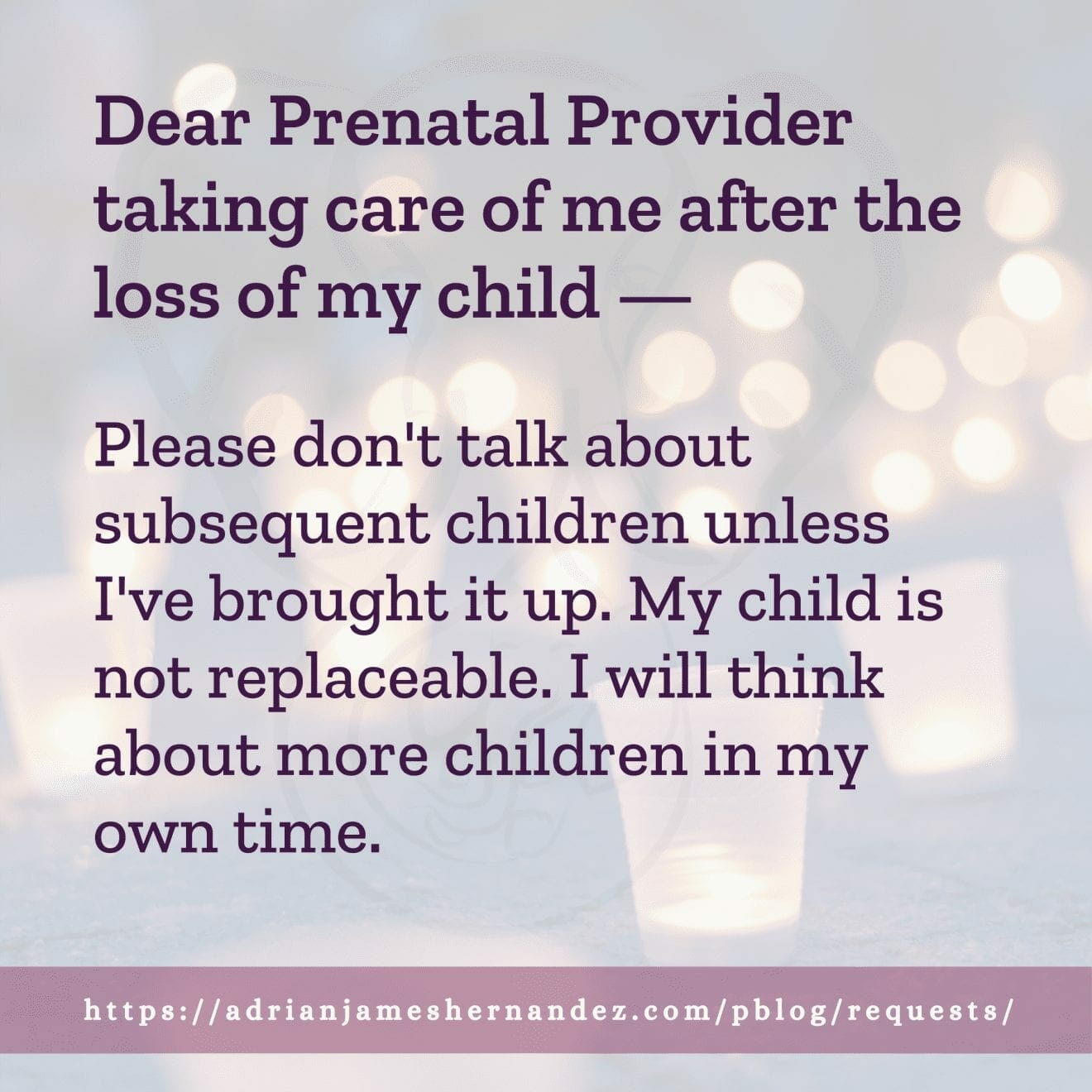After my son died at the end of a term pregnancy in 2017, I created this list of things I would like to see done differently in prenatal care, both before & after loss. The things mentioned about prenatal care would have made a difference in my pregnancy, and likely would have kept my son alive. The things mentioned about the experience of loss are all things that helped me to honor his life.
During pregnancy: Informed consent starts with information
- Inform & Educate—Inform all patients stillbirth is a possibility. Use matter-of-fact statements and real statistics. Talk about stillbirth the same way you talk about Shaken Baby Syndrome and SIDS

-
- If a pregnant patient wishes to discuss risk with you, do so honestly, in as much detail as they desire. Do not dismiss their concerns; you will only send them to Dr. Google
- If a patient is at particular risk for stillbirth or other difficult outcome, ensure they understand what that means. Do not reassure them that “everything will be fine”, especially when higher risk exists. DO discuss specific risks, & actions they can take to be on guard and/or mitigate them
- Informed Consent—If a patient chooses to continue a pregnancy post-term, or to refuse a procedure that could increase risk of stillbirth, ensure they are aware of the numerical and specific risk; inform with hard numbers, and without fear
- Movements Matter—Educate your patients about the importance of kick counts. Read up on recent changes in Australia and the UK regarding tracking each baby’s individual pattern of movement instead of arbitrary numbers. Emphasize that each pregnancy is unique and should not be compared to other pregnancies, even for the same woman
- Eliminate Myths—Ensure your patients understand that babies never run out of room in the womb; movements change in type, but not in frequency

- Dangers of Dopplers—Talk to your patients about not using or relying on home dopplers for reassurance. Discourage patients from purchasing or using home dopplers
- Warning signs—Educate your patients on warning signs of stillbirth: marked decrease or increase in movements; any period of especially intense activity outside of the norm for that pregnancy; intense itching, particularly on but not limited to the hands and feet; sharp pain in upper right quadrant/under ribs; intense headache; swelling, especially intense swelling of hands and/or face

- Be available—Encourage patients to call you and/or go to L&D anytime they feel something could be wrong, even if they come in daily. Let them know they are never a bother
For the hospital/birthing center:
- Resources—Make contact with all local organizations providing memory or comfort boxes. Ensure all personnel are aware of the location of these boxes, and how to request more
- Cuddle Cot—If you have a cuddle cot, ensure all personnel are aware of its location and how to use. If you do not have a cuddle cot, consider requesting or holding a fundraiser to purchase one

- Training—Ensure all staff members are trained on appropriate procedures for stillbirth or perinatal loss
- Limited Personnel—Whenever possible, minimize the number of staff members who work with a bereaved family. This allows parents to become comfortable with providers and not have to explain or answer questions multiple times
If a stillbirth should occur:
- Be empathetic—Understand this is a traumatic & confusing time in your patient’s life, possibly/ probably their worst moment ever. Be prepared to speak slowly, proceed slowly, and repeat things if necessary. Whenever medically possible, give the patient time to process before pushing any procedures
- Ask for and refer to the child(ren) by name

(Miranda Hernandez; additional image sizes available at the bottom of this post)
- Provide Information—Inform your patient and/or their support person of all medical options. Discuss methods of induction and availability of a C-section if desired
- Follow Birth Preferences—To the extent medically possible, allow the birth parent to follow the original birth plan, and/or ascertain their current wishes for the birth. Do not assume the birth parent wants a fully medicated or “easy” birth, and if you offer anxiety medication, ensure the birth parent is aware of the effects it may have on memory
- Options for Memories & Memorabilia—Ensure patients are aware of all options to preserve memories and memorabilia, to include: Now I Lay Me Down to Sleep / other forms of birth photography; hand and footprints; hand and foot imprints; locks of hair; preservation of breast milk through breast milk jewelry; hospital memory boxes; any other items as appropriate
- Bathing/Dressing—Offer parents the option to hold, bathe, and dress baby, and the option to leave the child dressed upon departure from the hospital. Should they choose this option, ensure they receive these clothes at a later date
- Religious Observances—Offer the ability to observe any personal religious ceremonies such as baptism or blessing
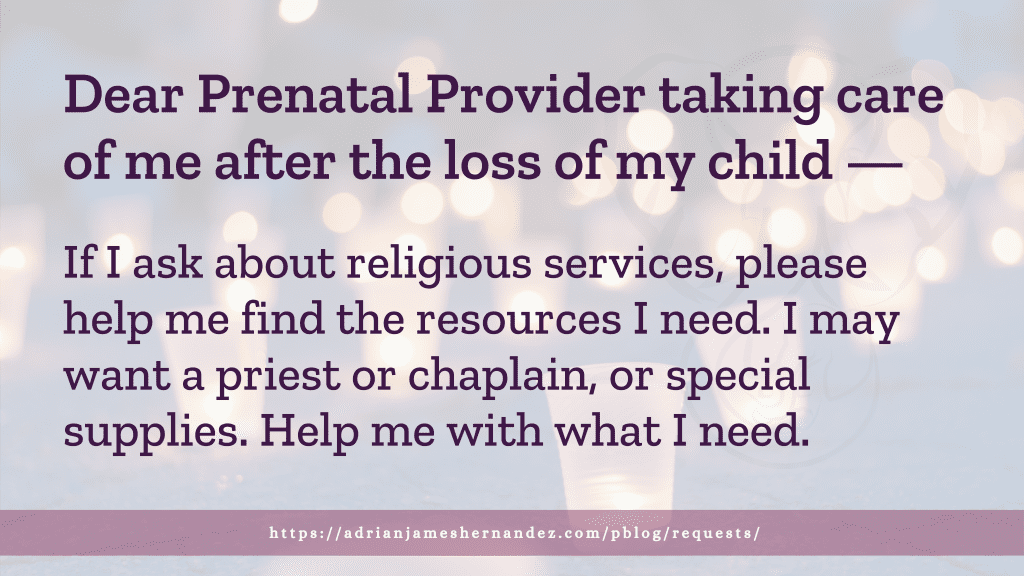
-
- Time—Allow/encourage parents to spend as much time as they wish with the child(ren), and do not pressure them to leave before they are ready. If available, offer the use of a cuddle cot in the hospital and/or at home. Ensure parents are aware they can also visit at the funeral home
- Physical Items—Keep or offer to keep all physical mementos possible: measuring tapes, blankets, ankle bracelets, etc. Keep even & especially if stained with the child’s blood
- Discuss Options for Breastmilk—Ensure the birthing parent is informed of the choice to either stop breastmilk or to express and donate it. Do not assume every patient wants to stop their milk
After discharge:
- Follow up—Follow up with the patient regularly. If possible, schedule a check-up within the first few days of discharge. Offer to and attend the funeral

- Be available—Be available to meet with your patient as often as they need it
- Listen—If your patient wants to talk to you about their feelings, listen. You are the face they are most familiar with, and they may want to talk to you before seeing a counselor, therapist, or support group
- Offer Additional Support—Referral to an MFM, discussion of autopsy results, referral to a grief therapist or support group, other medical services as appropriate. Understand many patients will not be ready to utilize these services in the beginning; offer again in a few weeks and/or months
In general:
- Understanding—Understand what it’s like to experience a stillbirth or perinatal loss, both physically & emotionally. If you don’t have personal experience, read books/blogs, or speak with bereaved parents
- Be a resource—Be aware of support groups and resources for bereaved parents in your area
- Support the whole family—Ensure the father/second parent/other family members also receive support
- Use plain language—“Stillbirth” is not a dirty word. Use plain words like “stillbirth” and “death”
- Use caution:
- With religion—Do not assume religious beliefs or discuss religious concepts unless the parent(s) have done so first. This includes use of the word “angel” when referring to the deceased child. If you follow a personal faith, request permission before praying/offering to pray
- With concepts like guilt, fault, and blame—While some patients will want to be told the death is not their fault, others will feel alienated by those words. Allow the patient to steer the conversation in this area

-
- When talking about subsequent children—Some parents will want to discuss this right away, but some will not. Avoid phrases like “try again”; instead, say “try for a second/another child”. Similarly, avoid terms like “rainbow baby” unless the parent(s) have used it first
- When dealing with an “early” loss—Regardless of the legal definition of miscarriage vs. stillbirth, ensure all bereaved parents are supported in every way they need. All parents should be offered support and the option for memorabilia, to include photos, and all parents should be able to select a means of disposition for their child’s remains
- Please know, most of all, that you were with me on the worst day of my life, and I appreciate it. I probably can’t tell you right away, but you should know. Thank you.

***Regardless of past experience and everything written here, each individual case is specific
and unique. Where conflict exists between these instructions and patient desires, always allow the
patient freedom to choose. They will be your guide in providing the care they need***
~
A PDF version of this post is available here: Requests of a Bereaved Mother for Prenatal Providers.
Related Posts:
Resources for Prenatal Providers
Resources for Expecting Parents
Downloadable graphics for “Requests of a Bereaved Mother for All Prenatal Providers”:
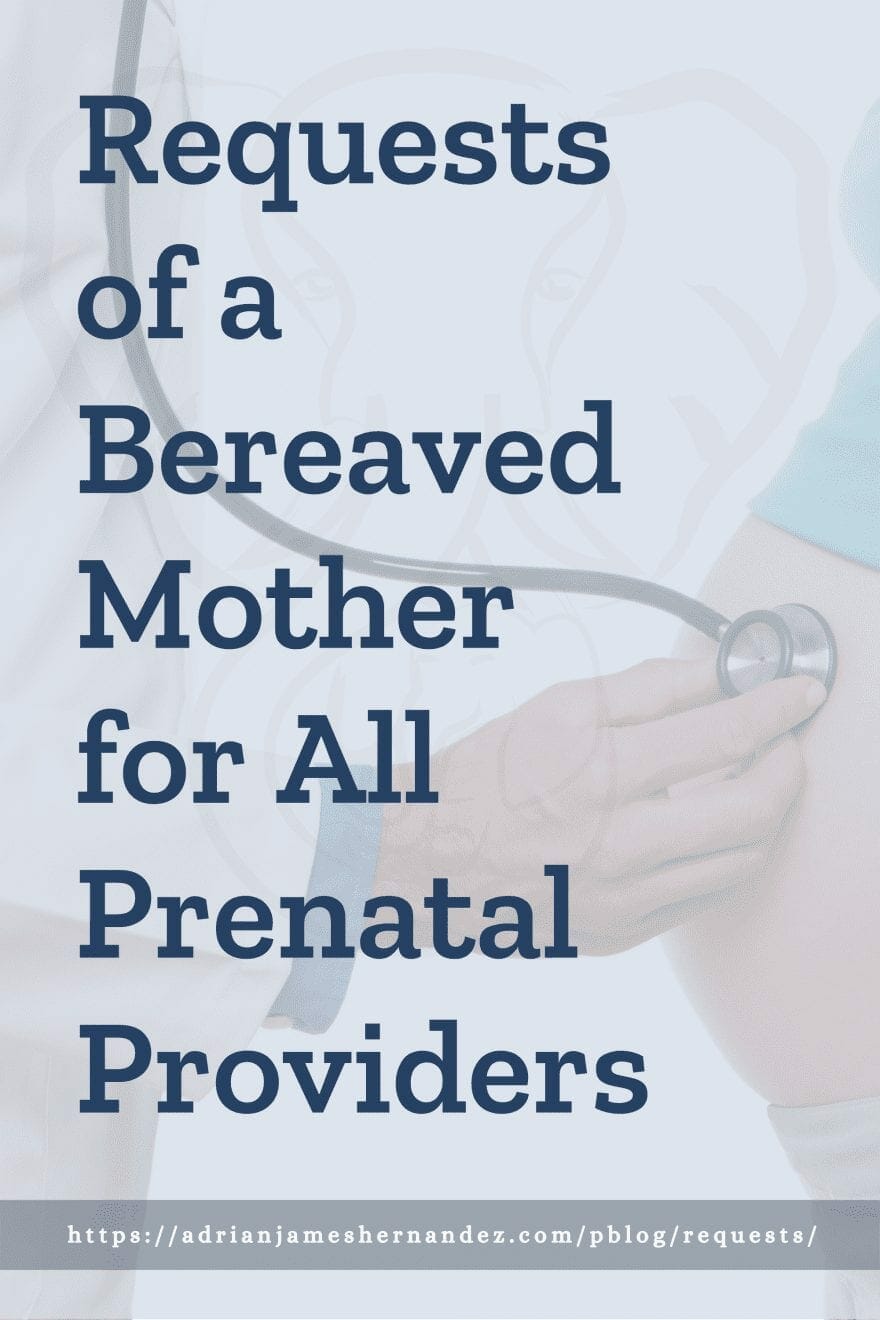

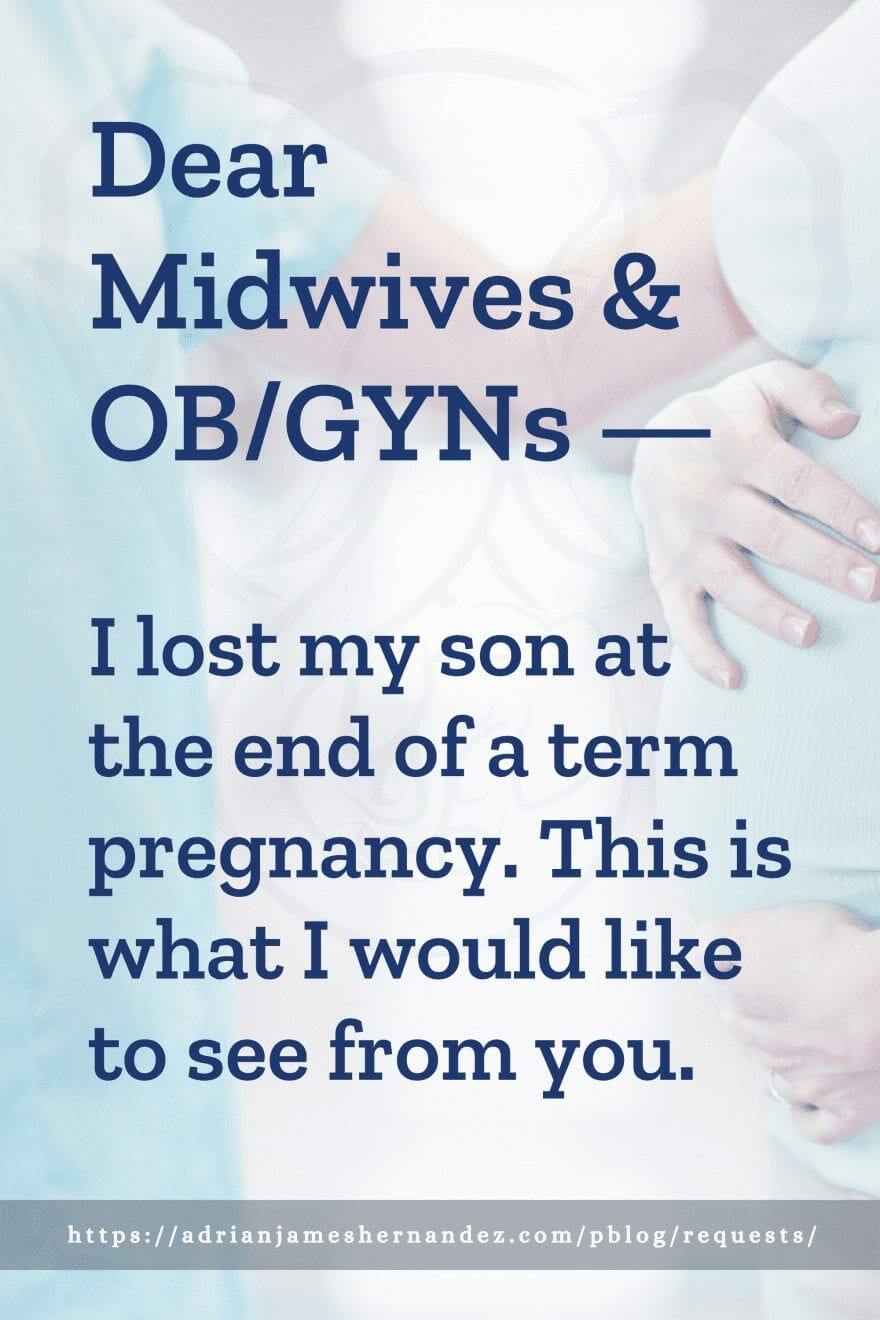


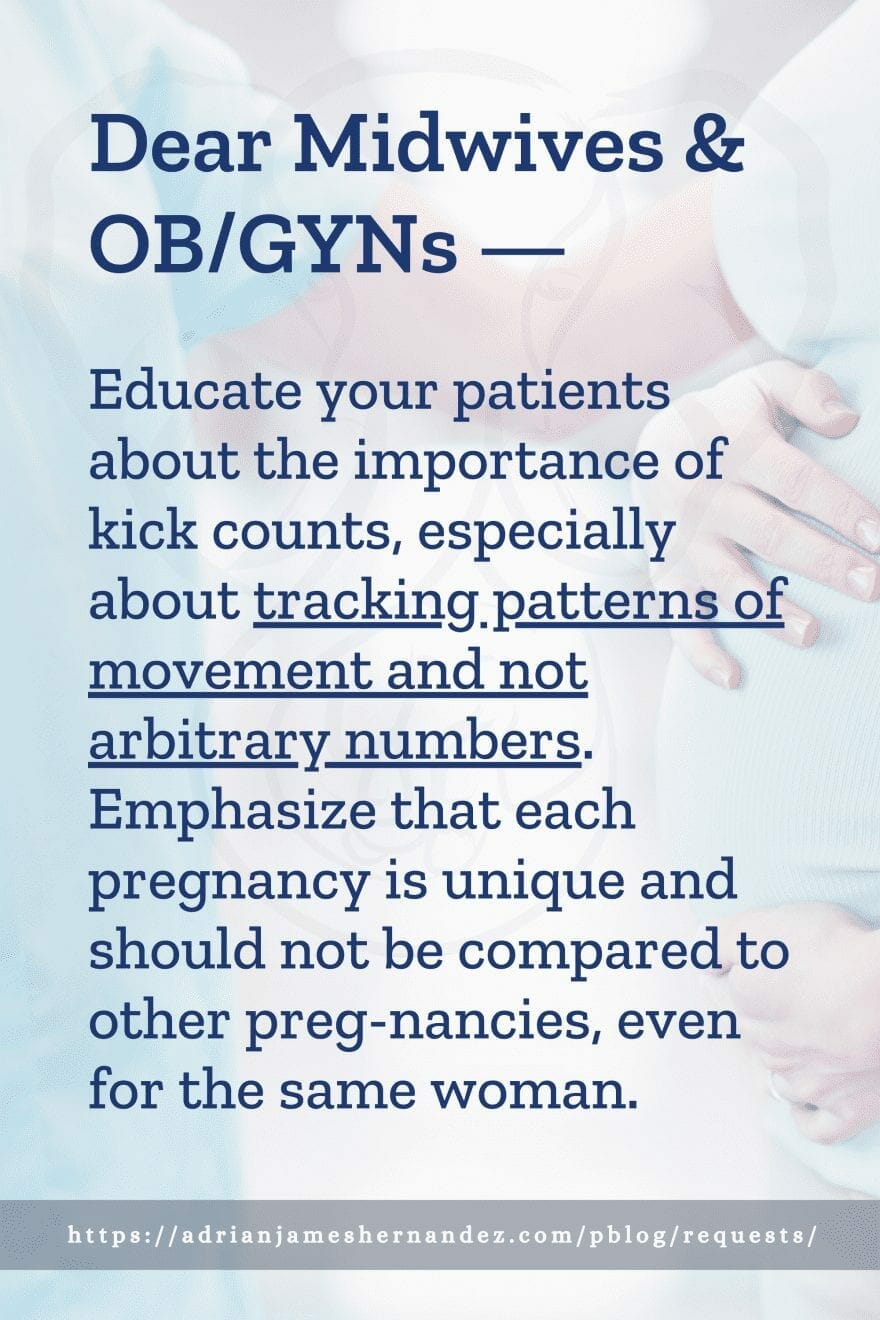







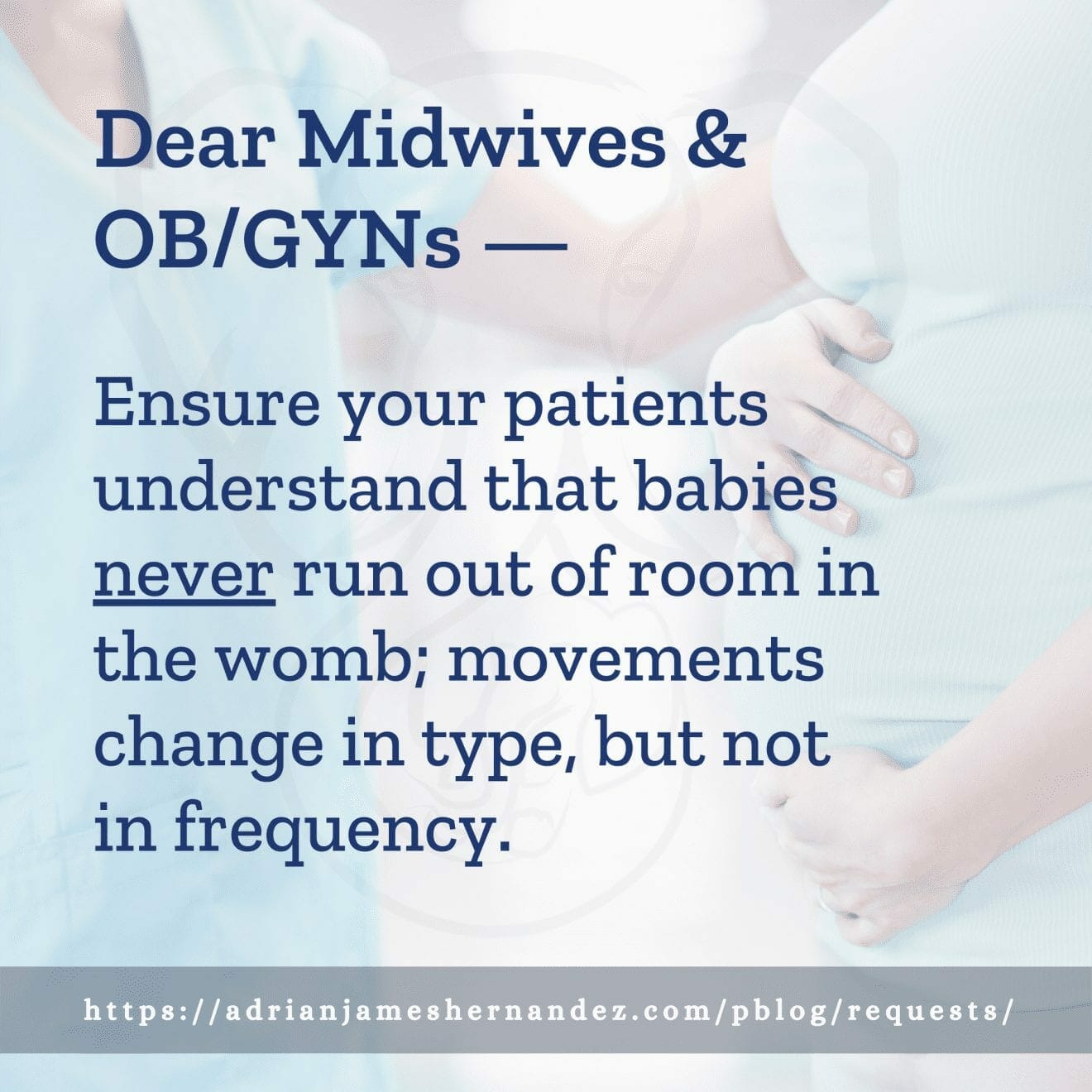
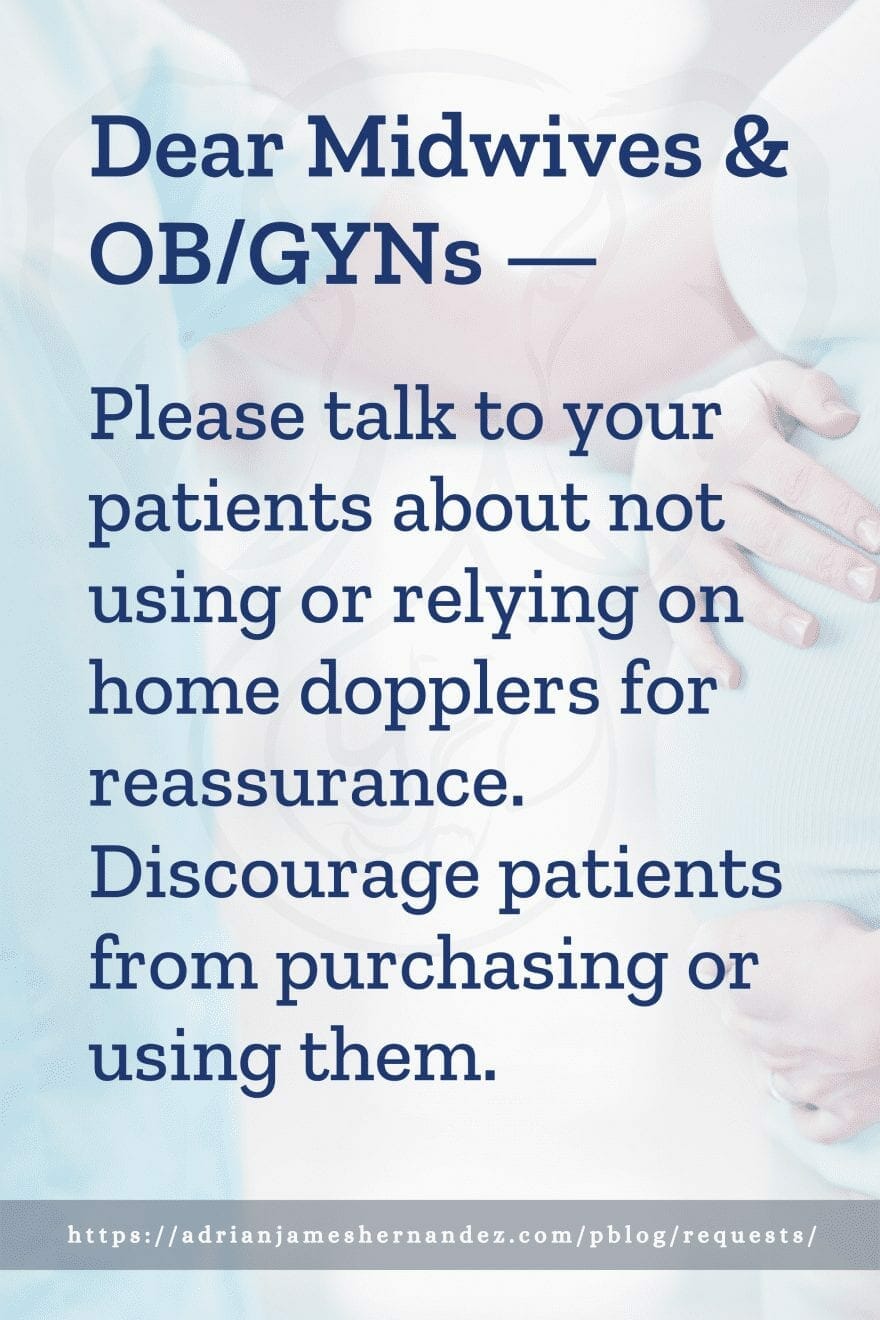
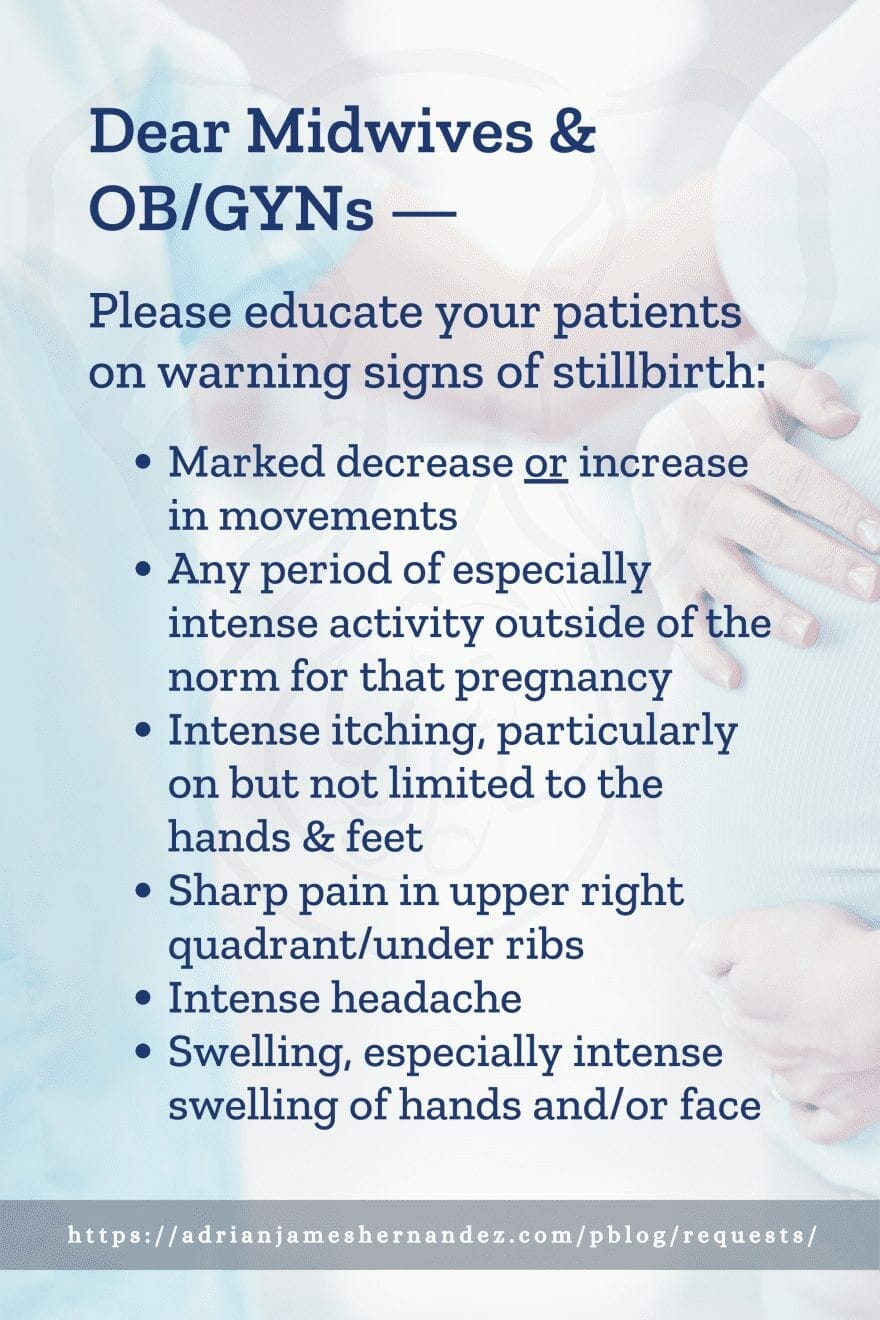








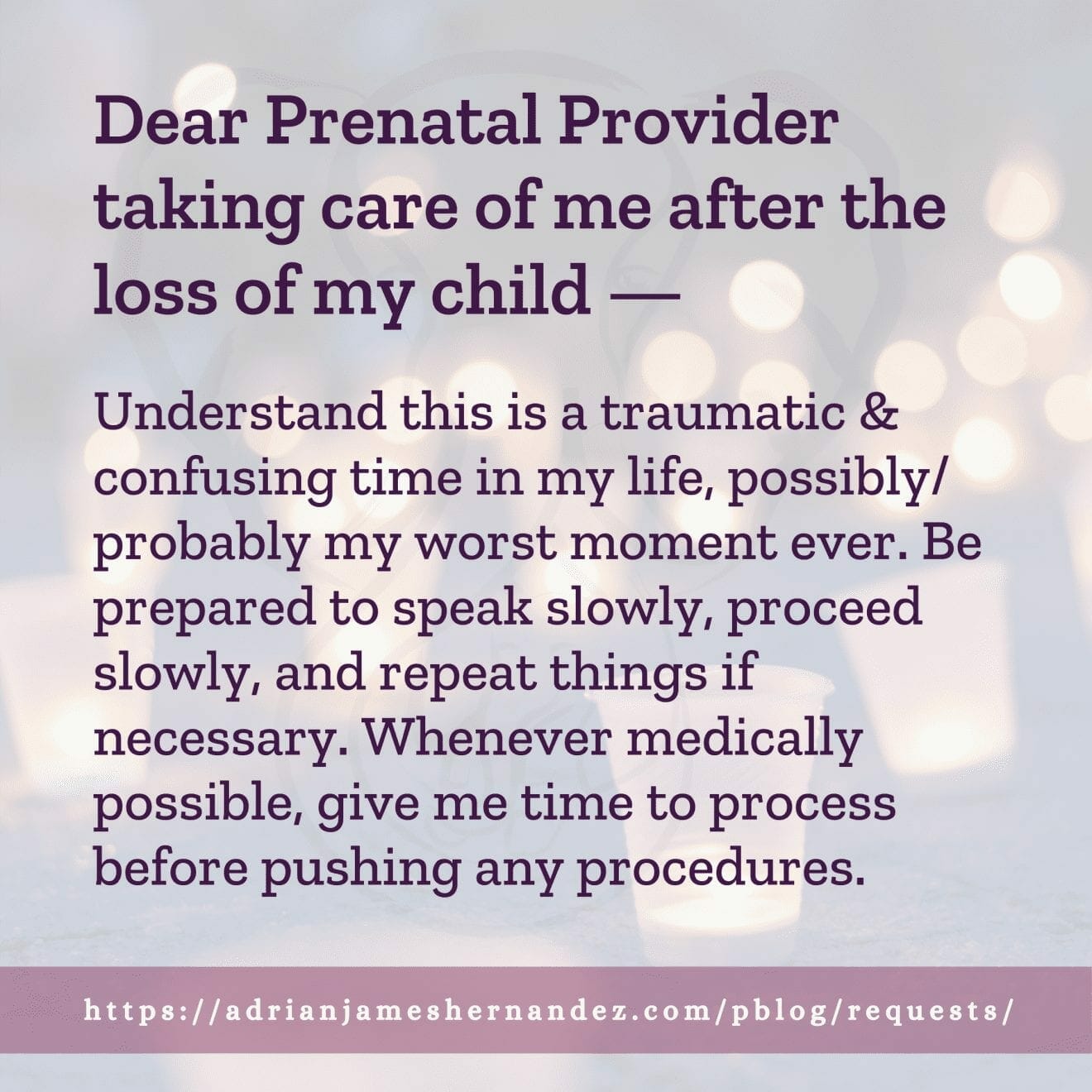
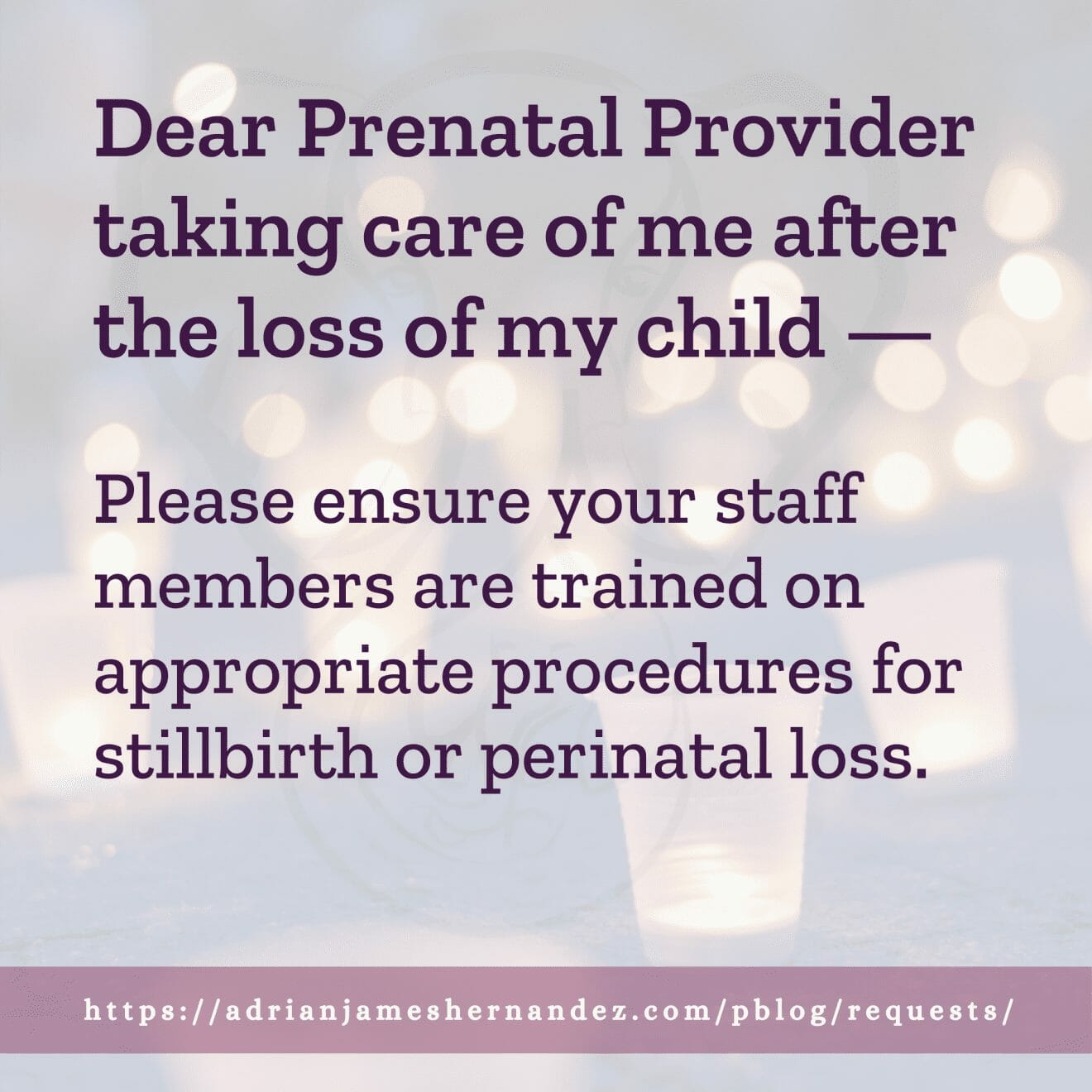
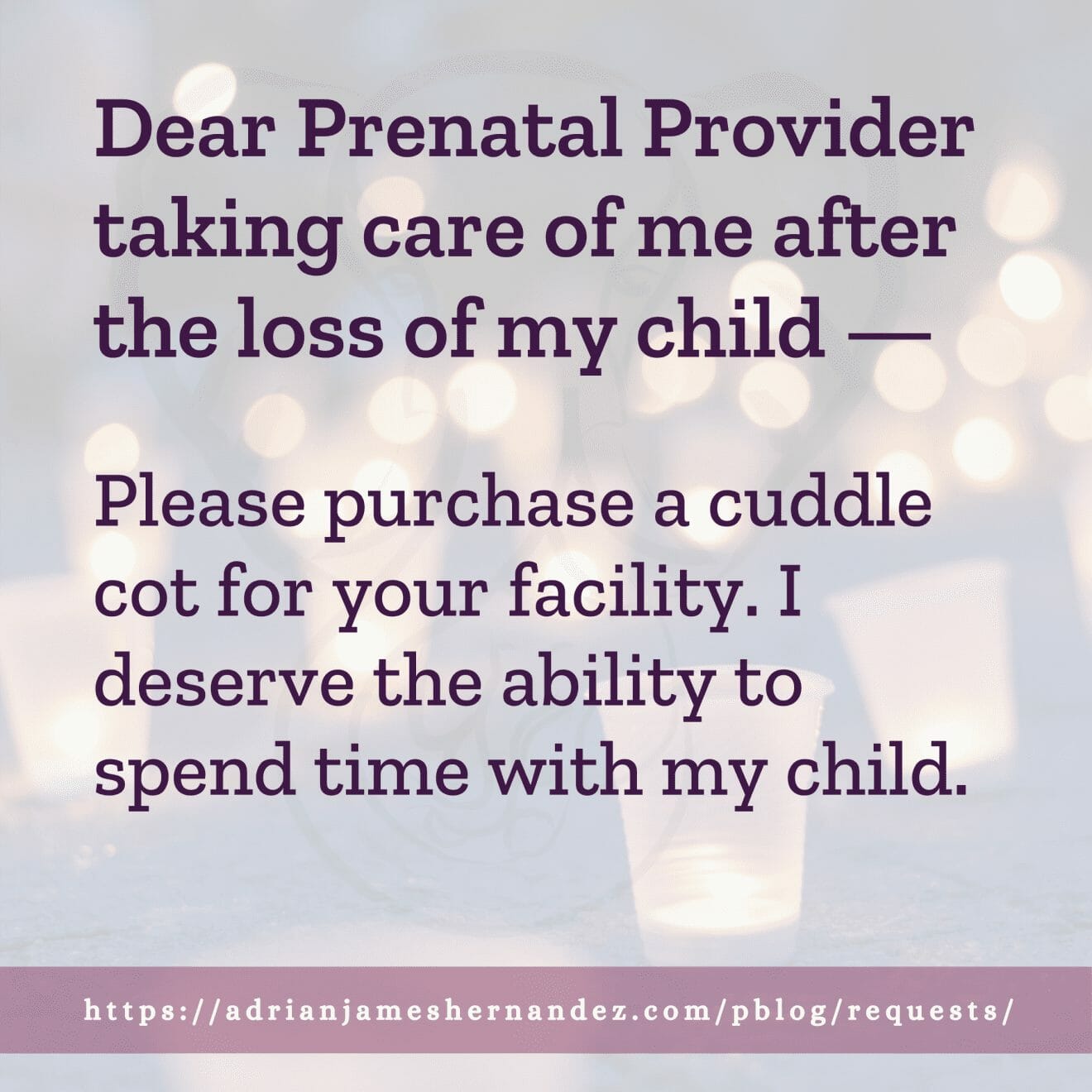

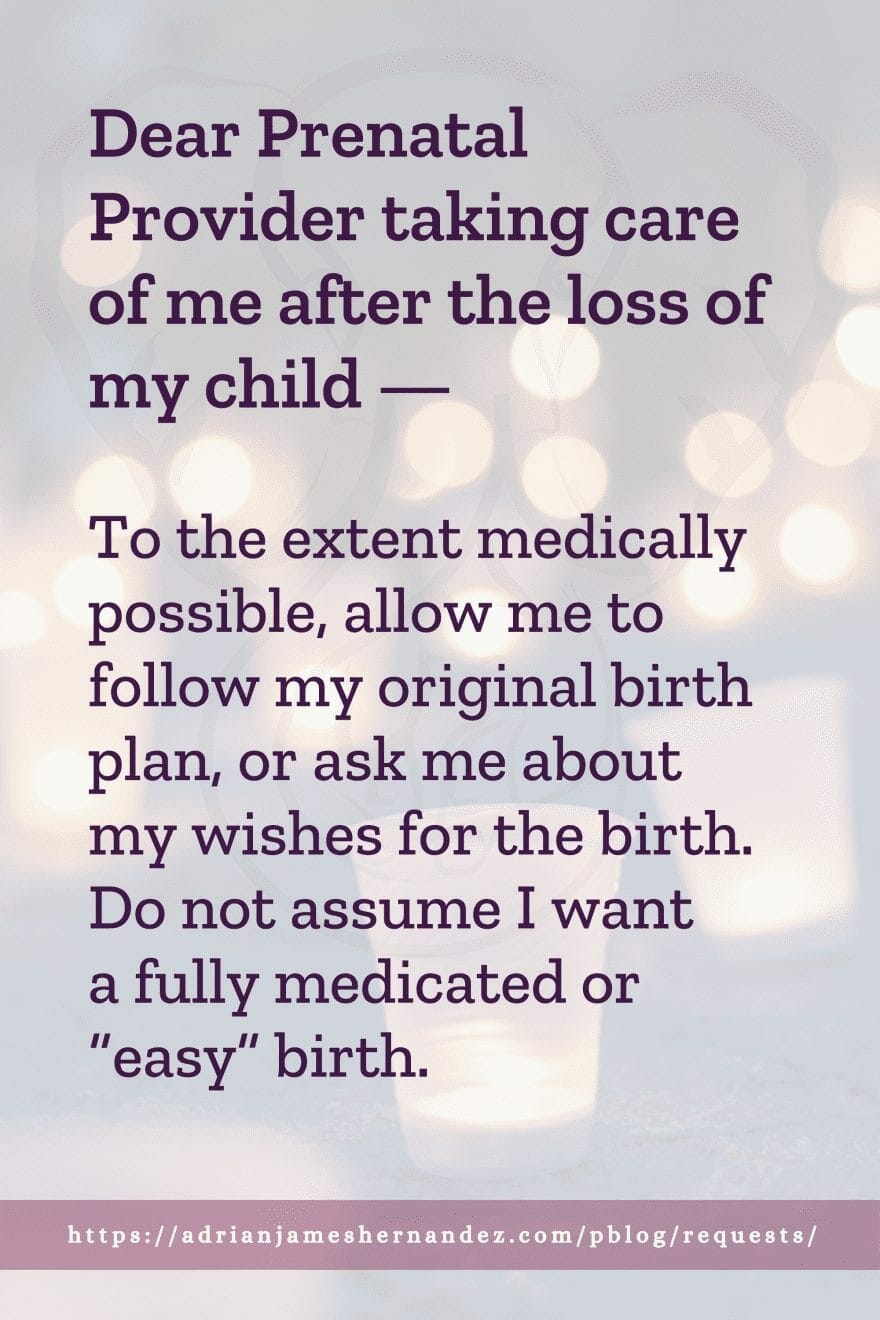

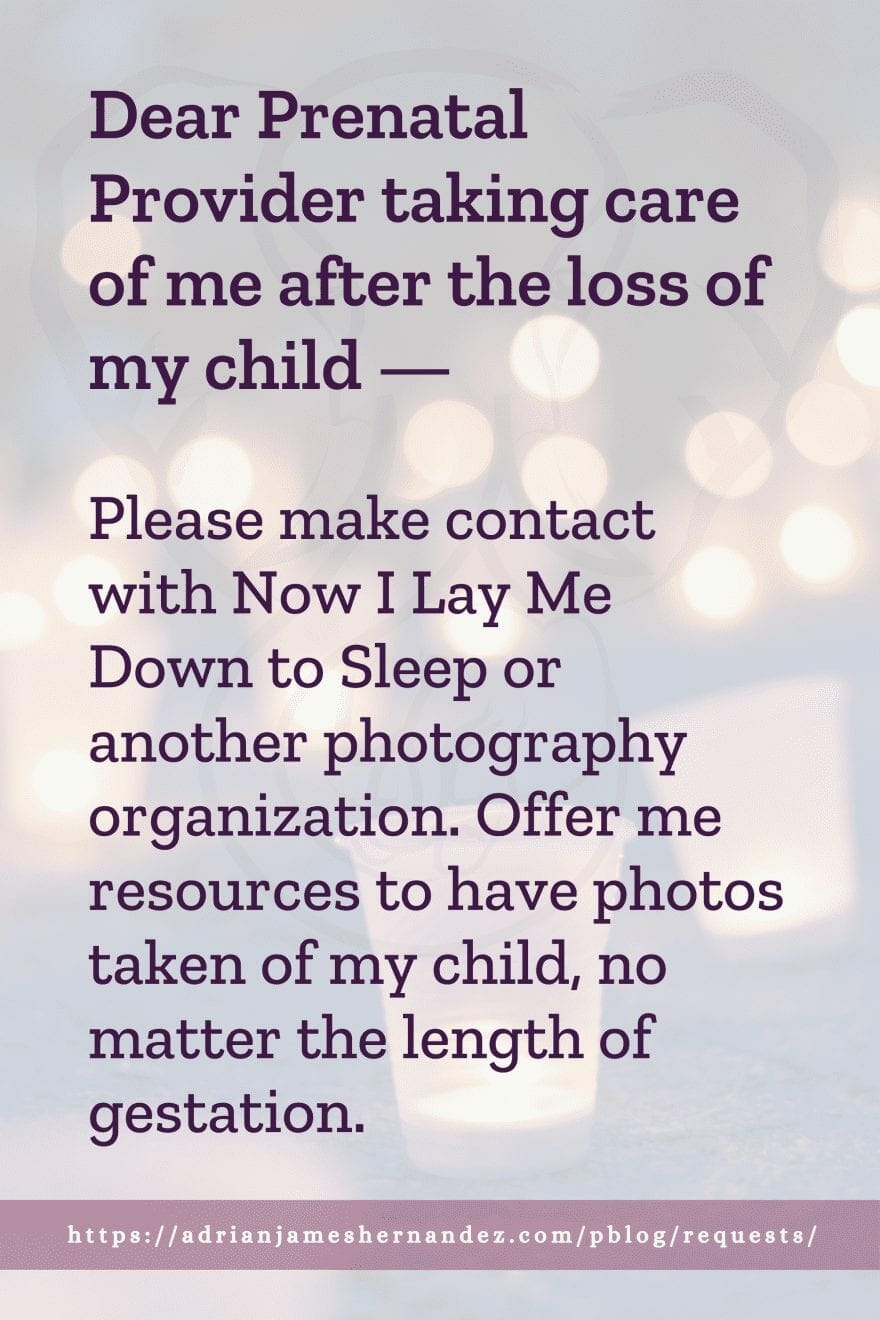
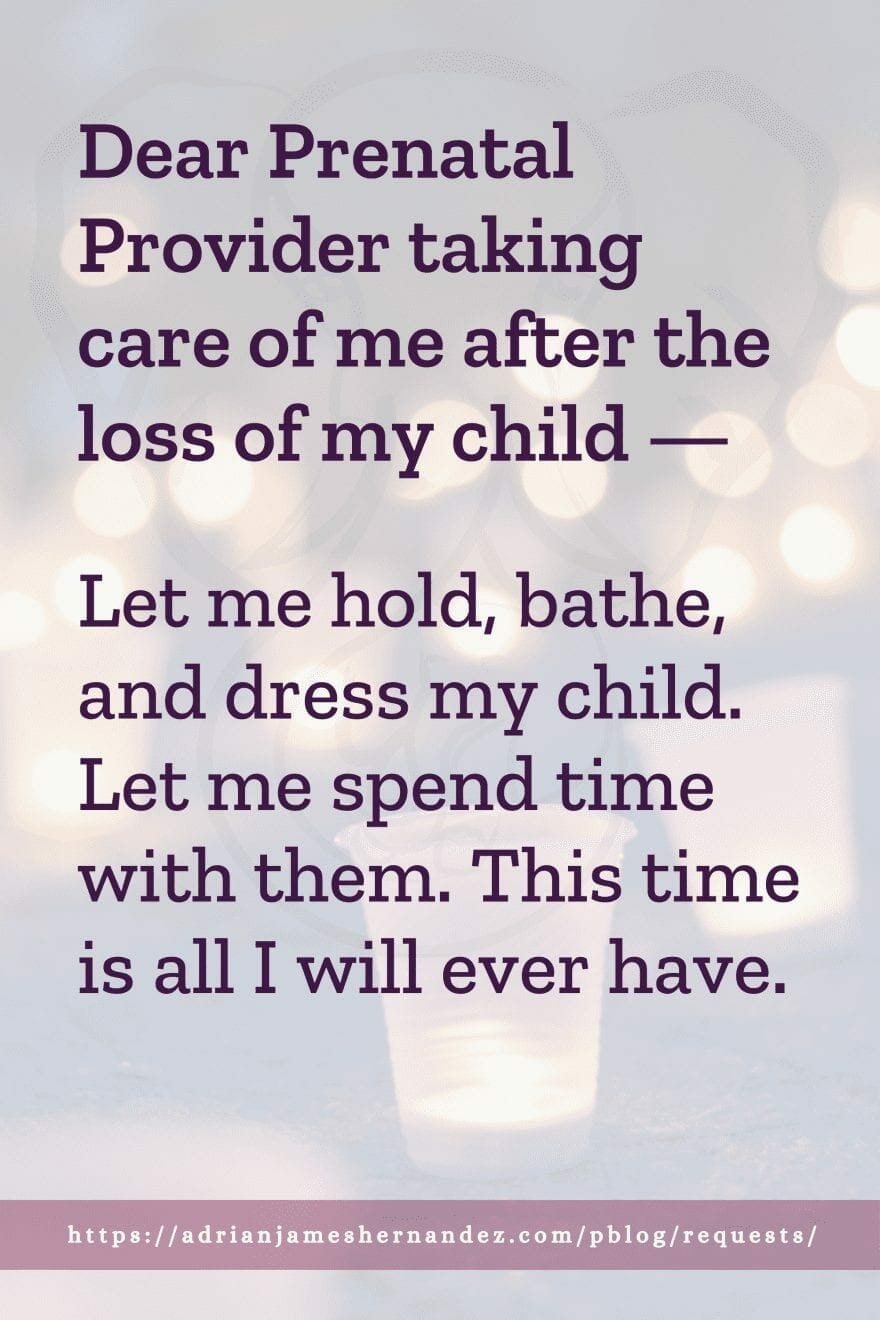
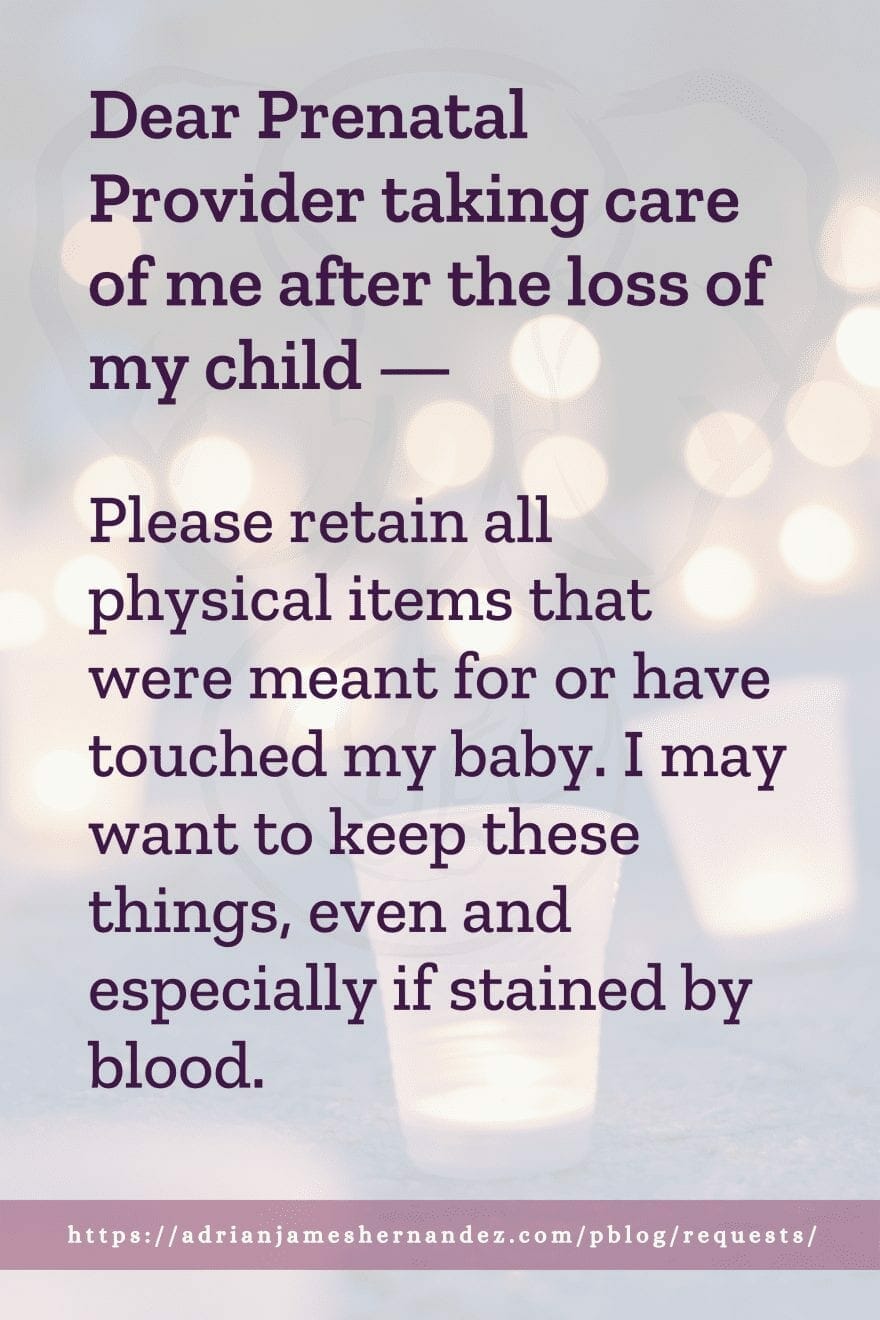

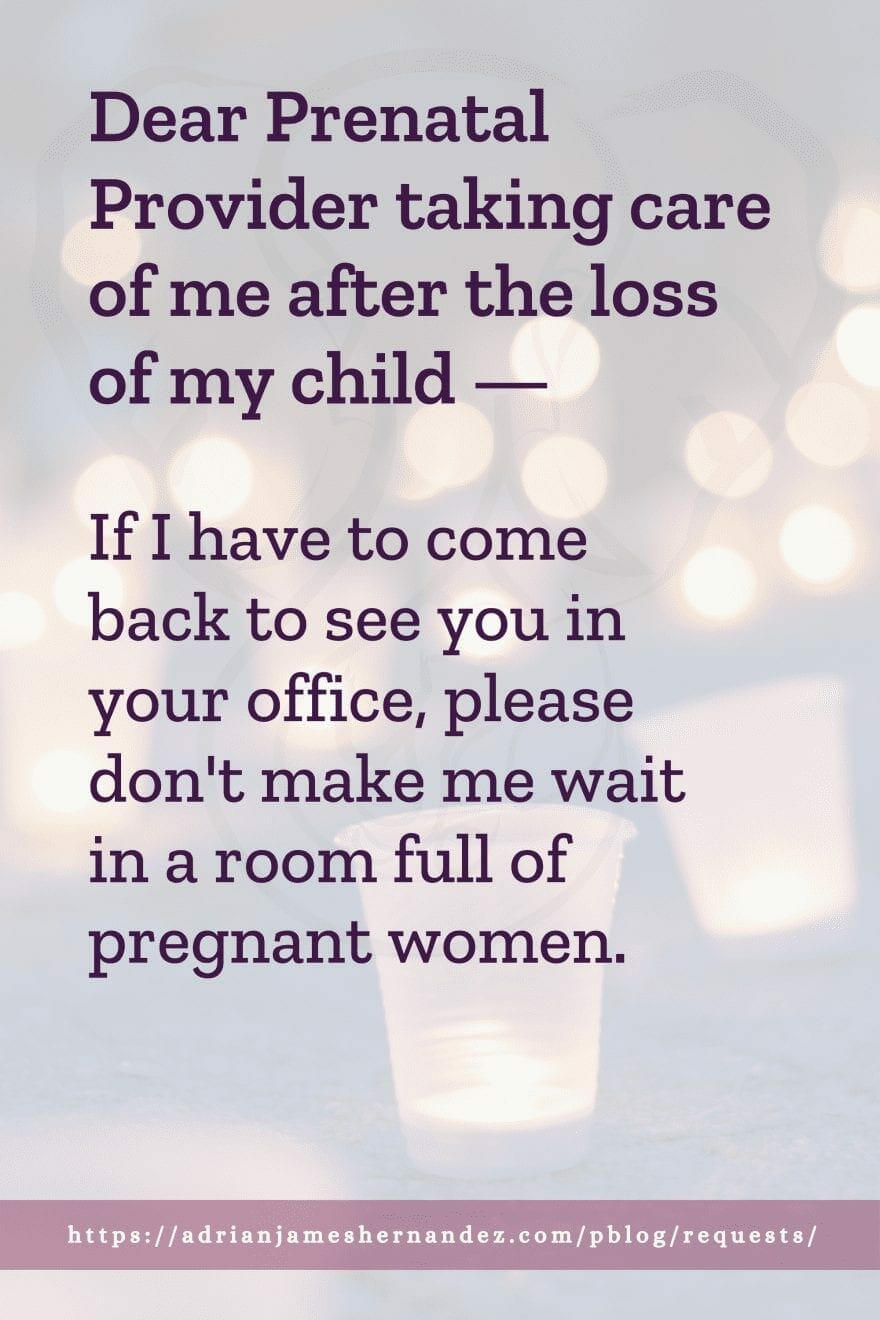
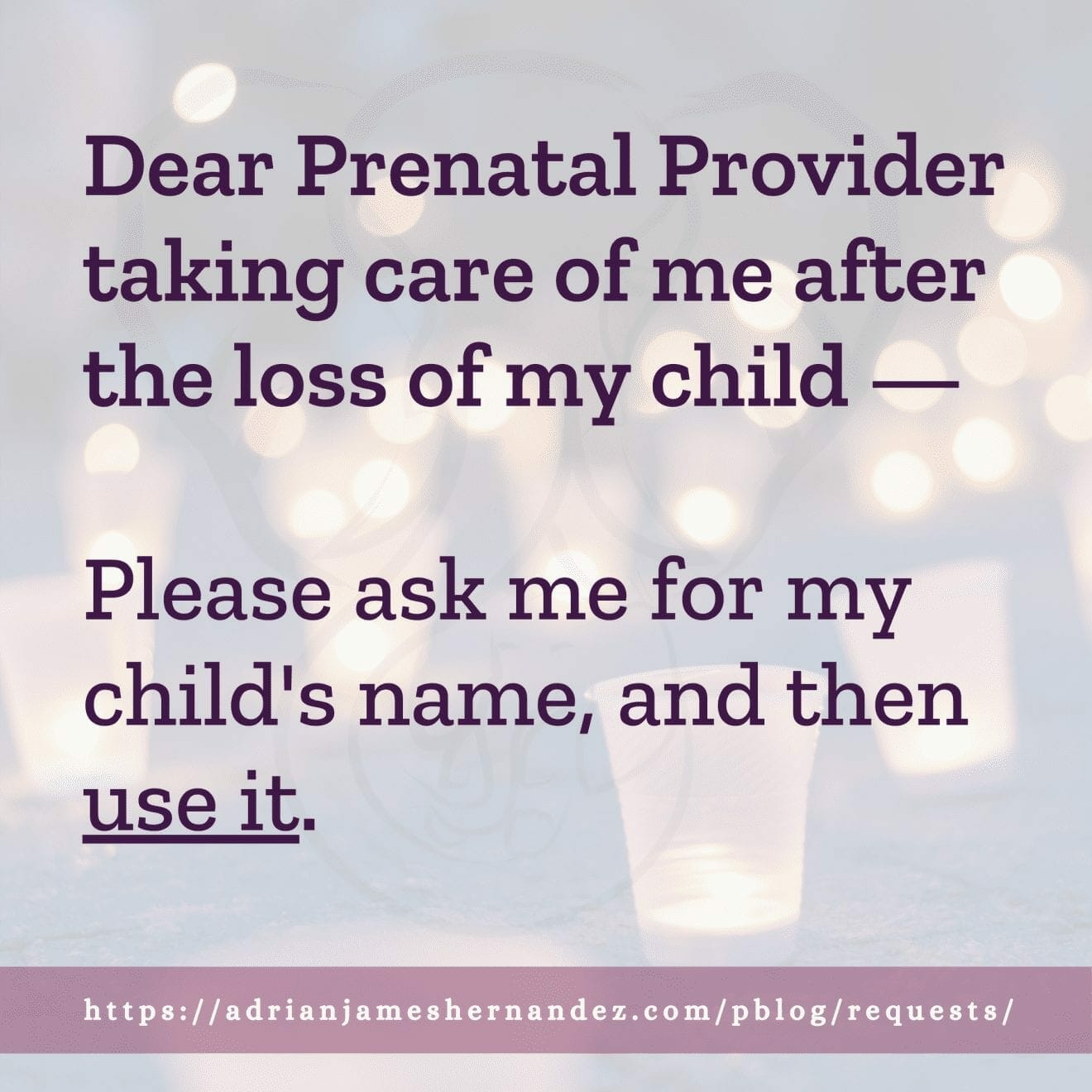




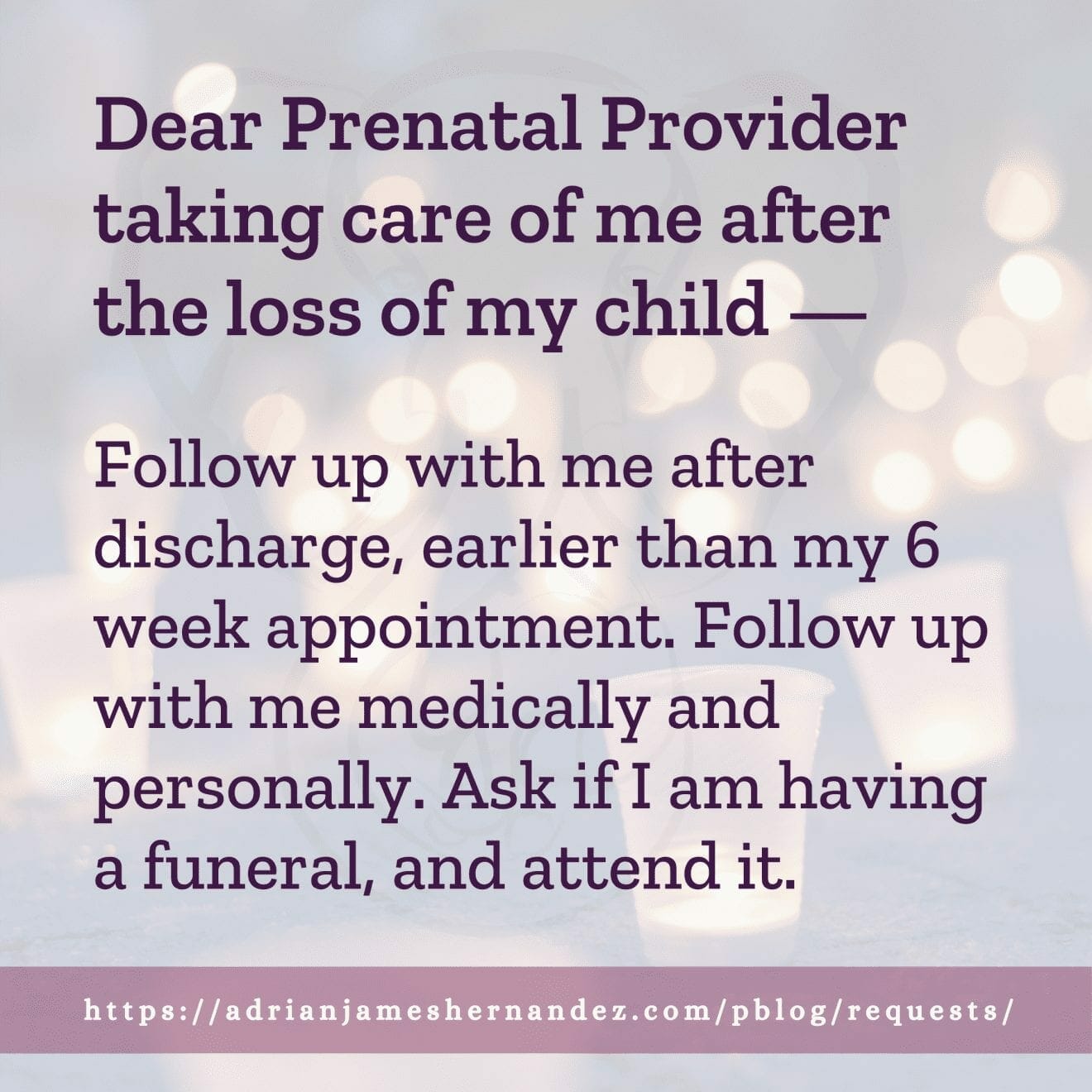





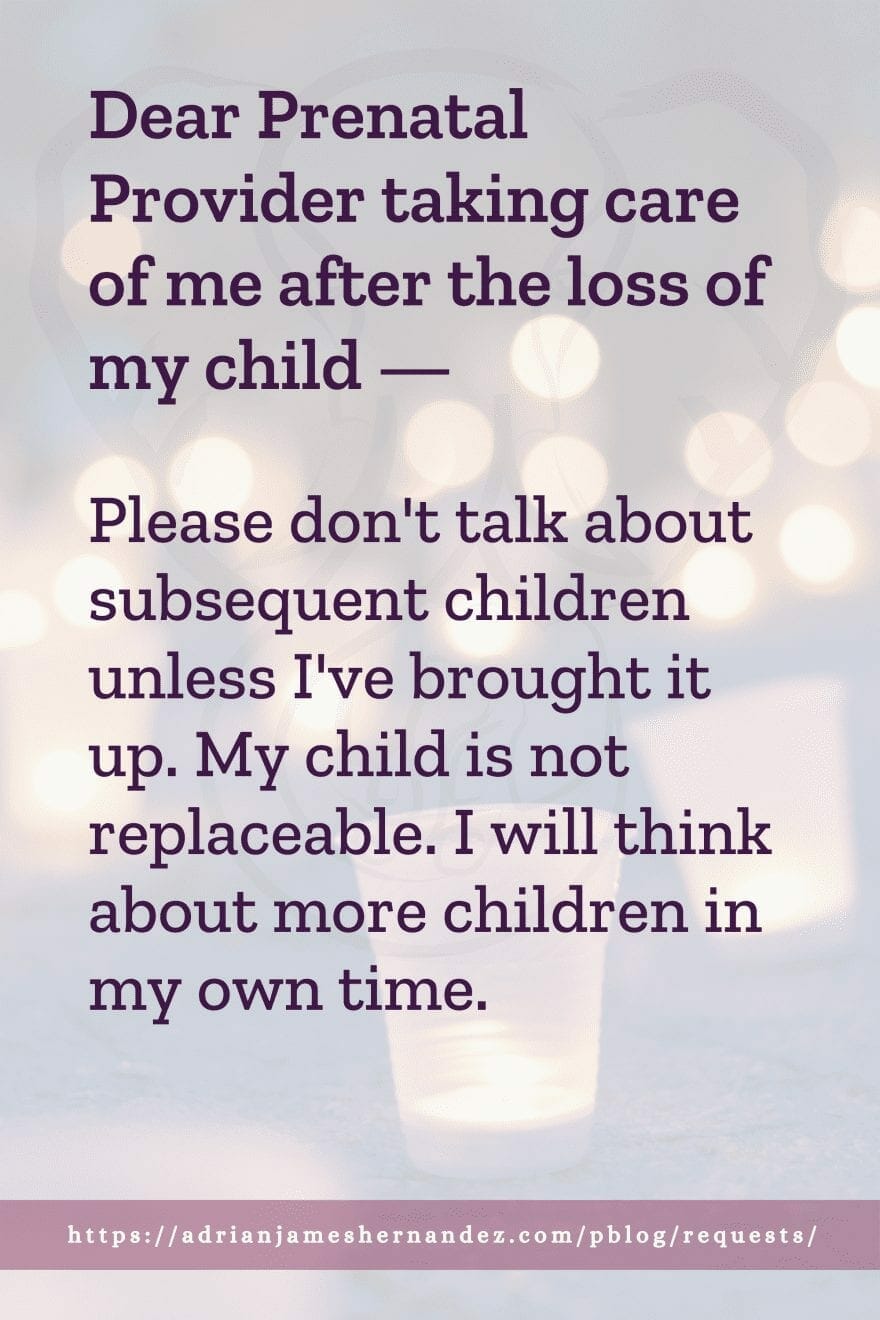



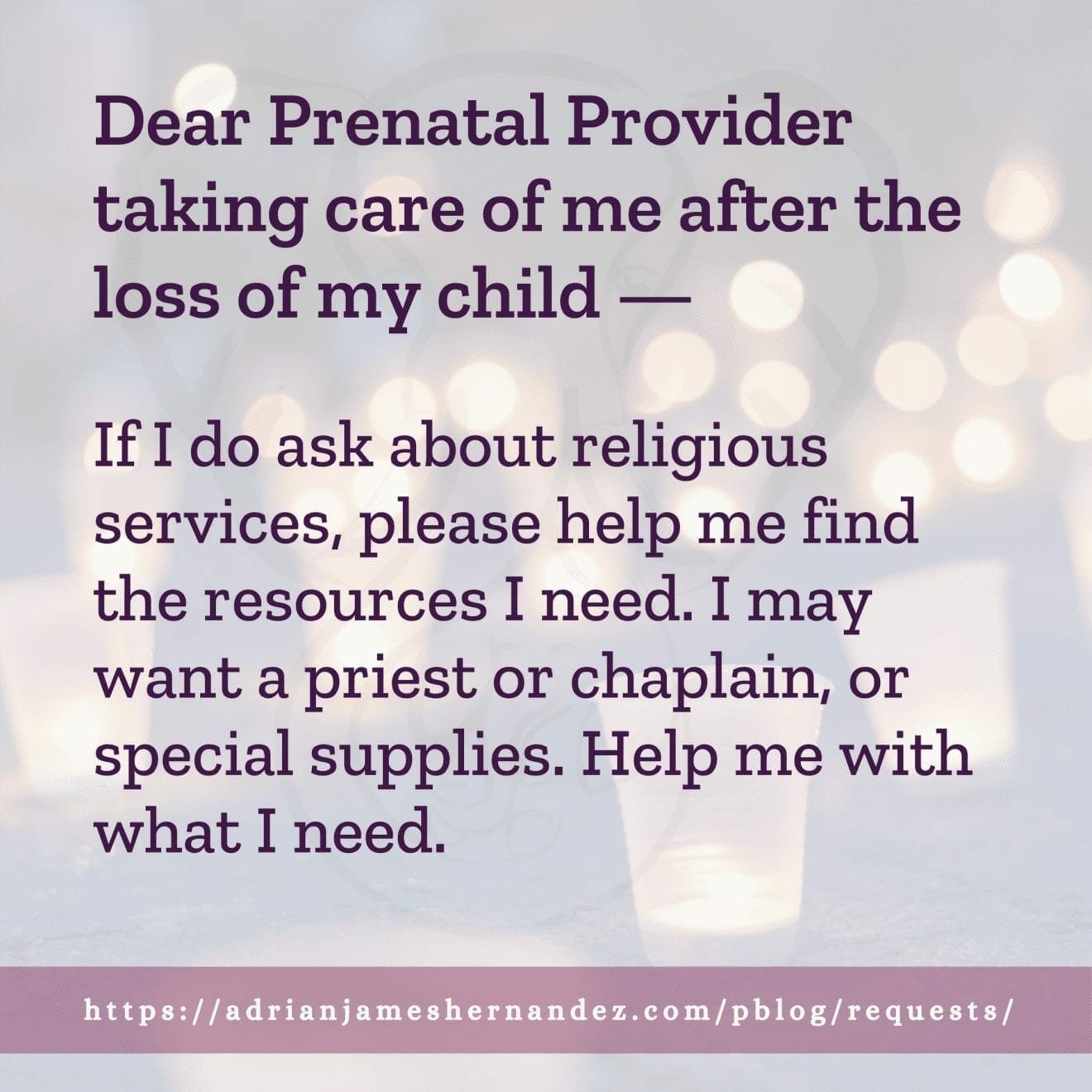

This post was originally published on Miranda’s Blog.


